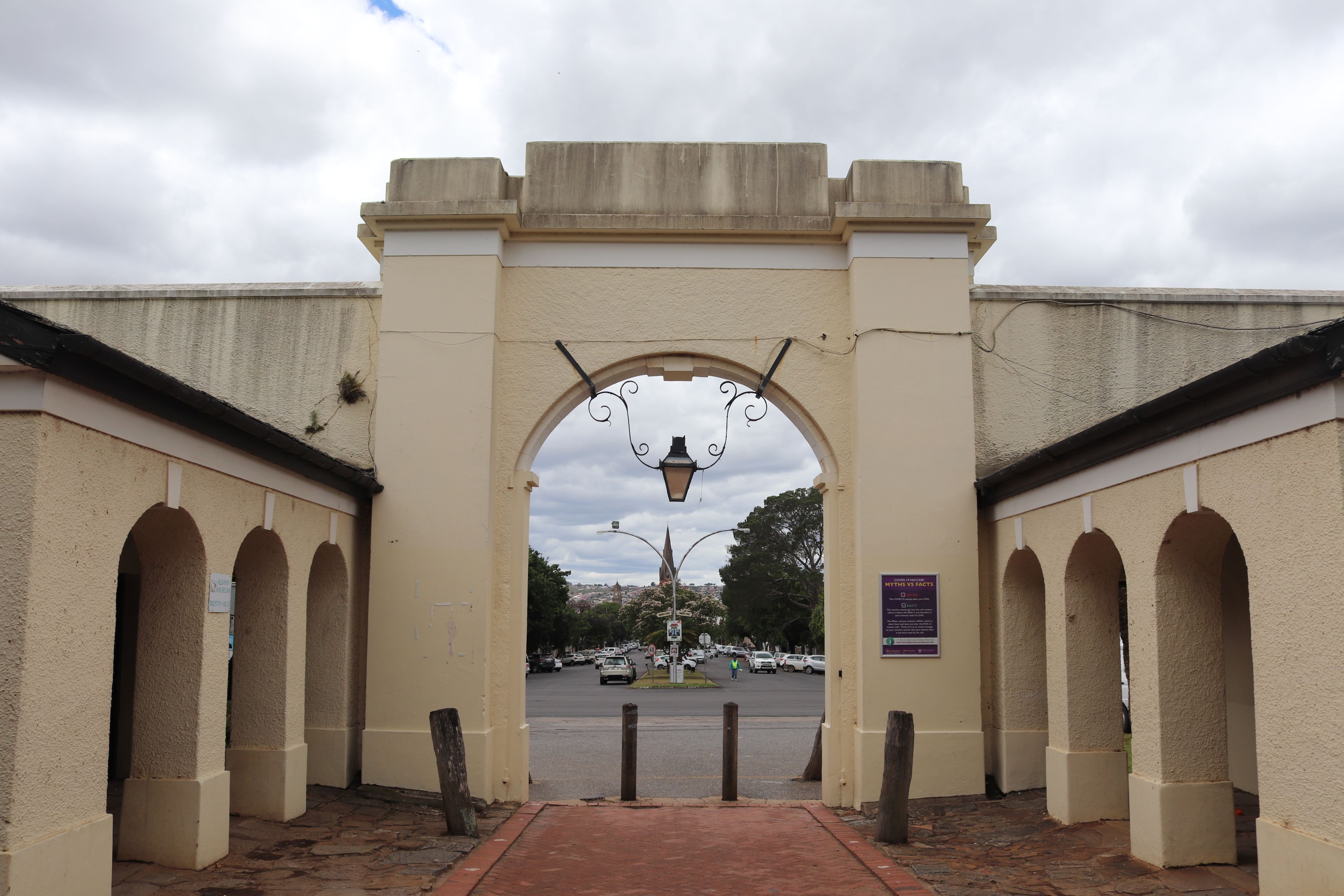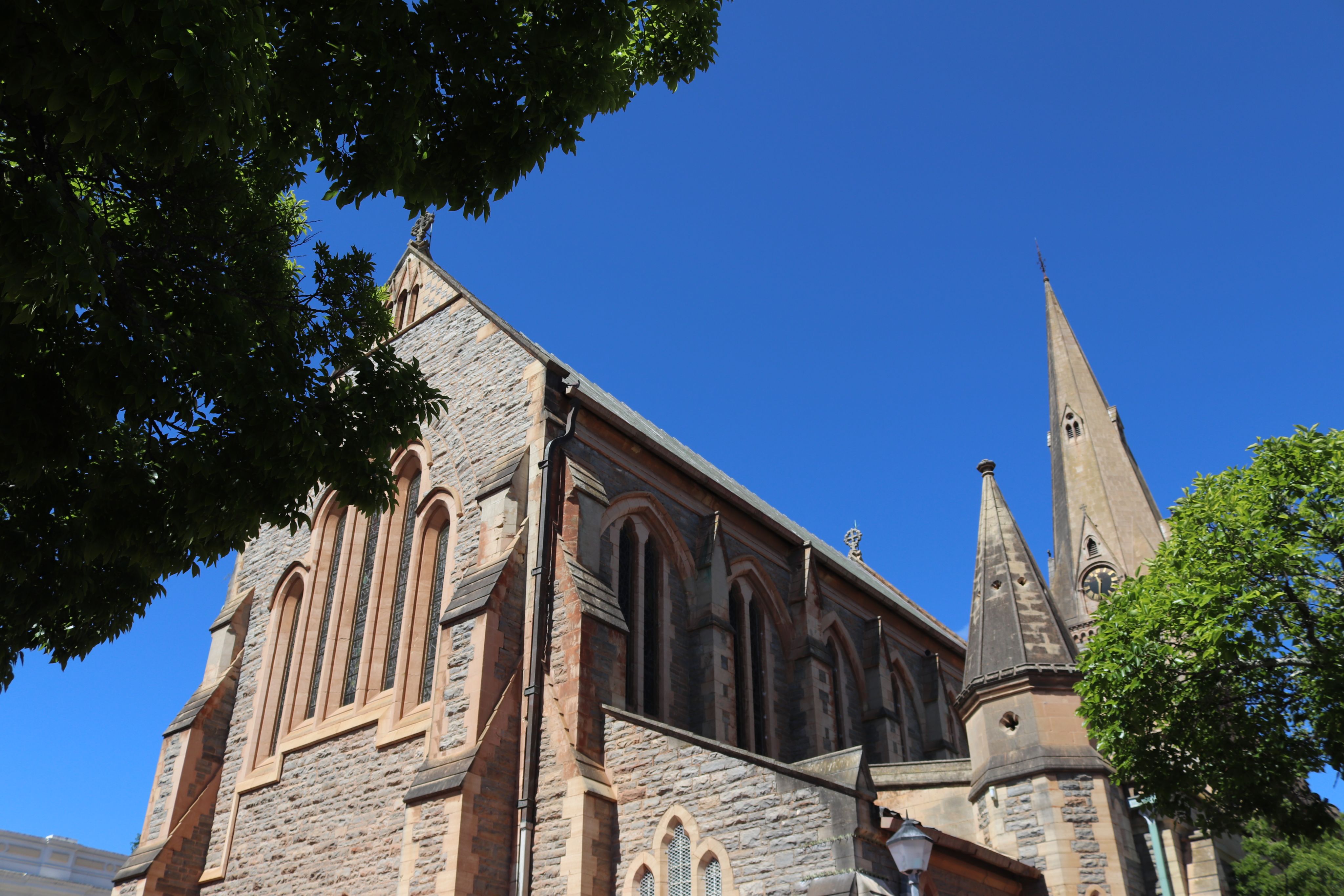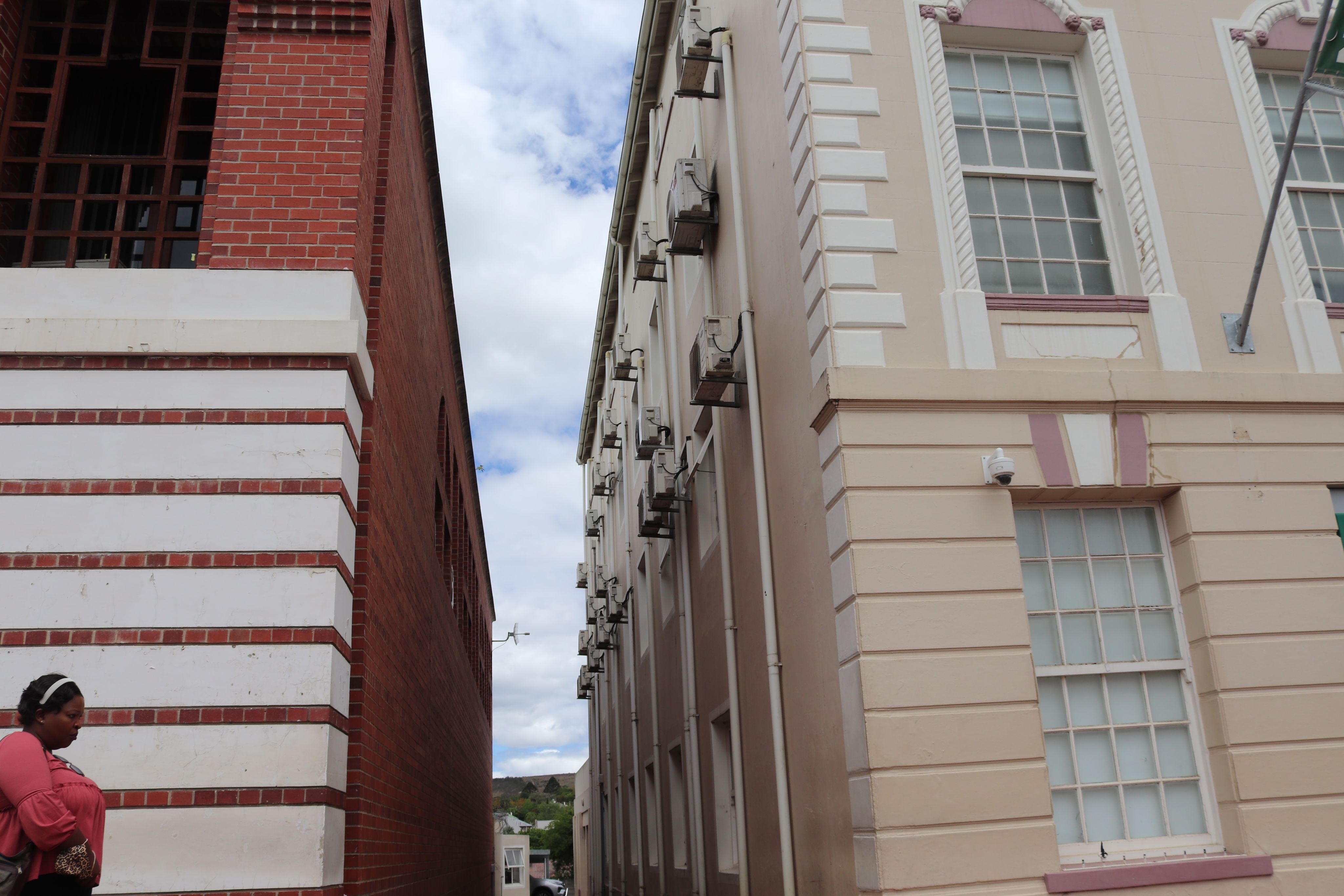IINGCAMBU ROOTS:
A multimedia documentary that ties together the stories of Black people, our identity, community, roots and the lives that make us all a part of the same story. What lies beyond the Makhanda as we know it.
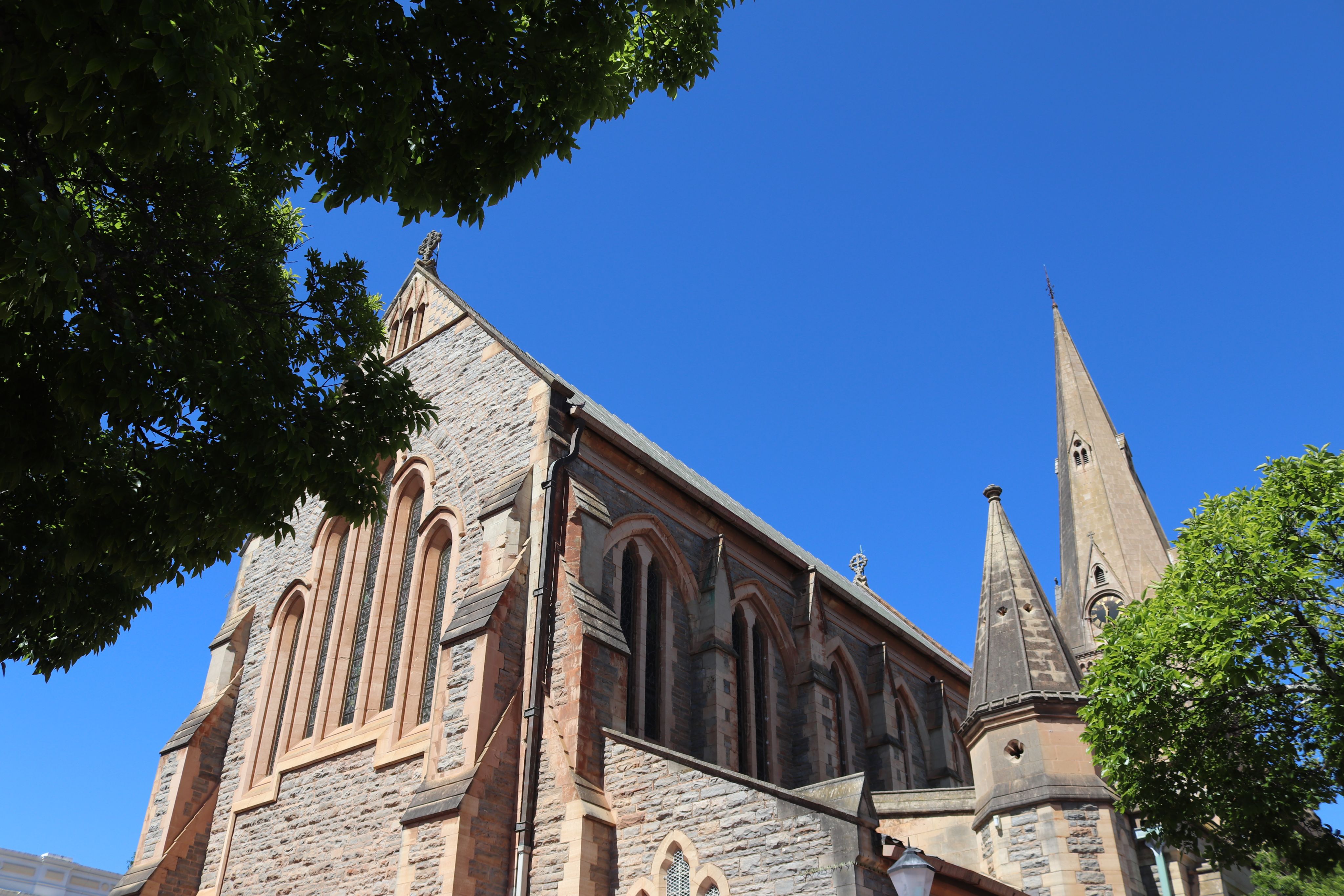
The essence of our blackness is rooted in far more than the melanin of our skin. Our blackness is our shared experiences, trauma and knowledge. It is how we see the world and how the world sees us
When I first think of identity, I think of what makes me different and the same to people around me. According to (Buckingham 2008), "The fundamental paradox of identity is inherent in the term itself. From the Latin root idem, meaning "the same," the term nevertheless implies both similarity and difference. On the one hand, identity is something unique to each of us that we assume is more or less consistent".
Globally there is a commonality shared amongst just the human race as it is. There is a commonality amongst those of the same age, the minority, the rich, those sharing the same skin colour, and those with the same political views.
IINGCAMU ROOTS takes us through a journey in discovering what the people of Makhanda, a small town in the Eastern Cape, share, their roots, and what has kept them tied to this place for their whole lives.
It is a story of our blackness, our cultures. The stories that lie within every one of us that tie us all to the same body and place. Globally, there is a commonality among all black people. During this documentary, we will discover that these women share a bond with me that we were never aware of.
My identity is rooted in being black and being a woman. My race and my gender are what define and influence a big part of my insecurities and beliefs.
IINGCAMBU ROOTS is not just a story about two women who live in Makhanda this is a journey that explains how two women from completely different places, who are not even aware of each other come to tell a story of their lives, their roots and their community which all falls part of one grand story that can be a story for any woman, black person and those from the Eastern Cape
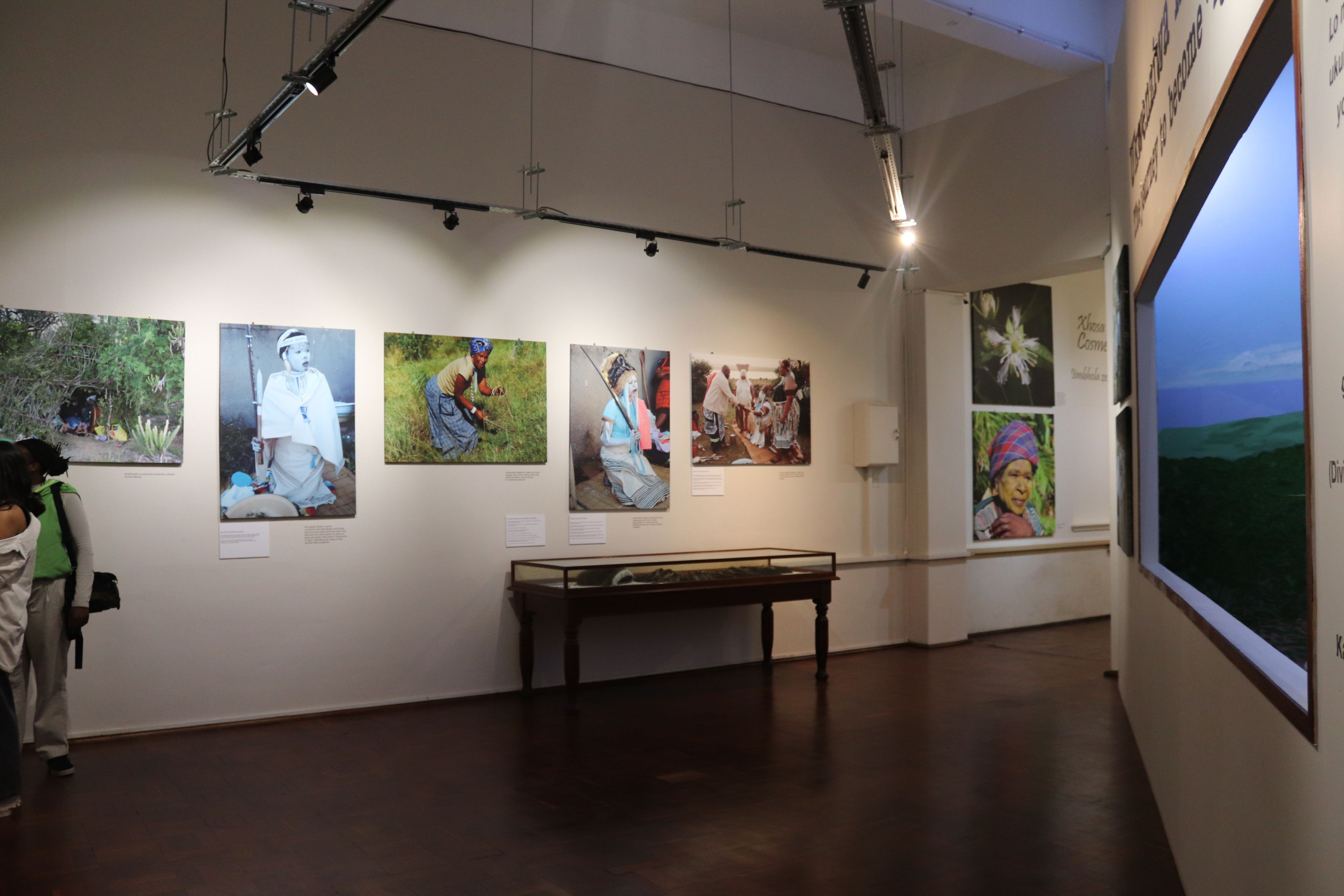
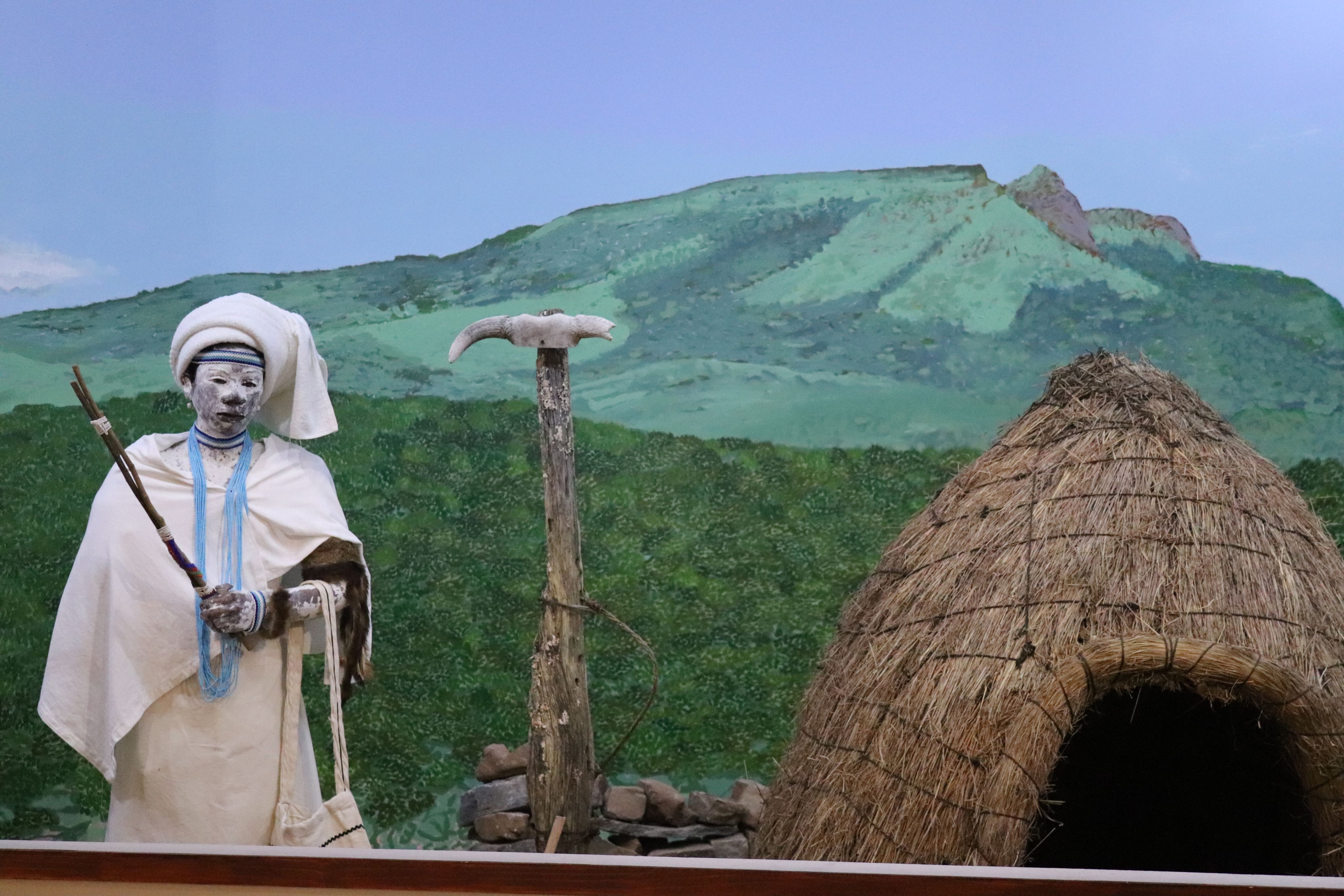

Joza Street the home of the Mhazi family located in the township of Makhanda
33.2866° S, 26.5606° E
Joza Street
The Mhize Family Home
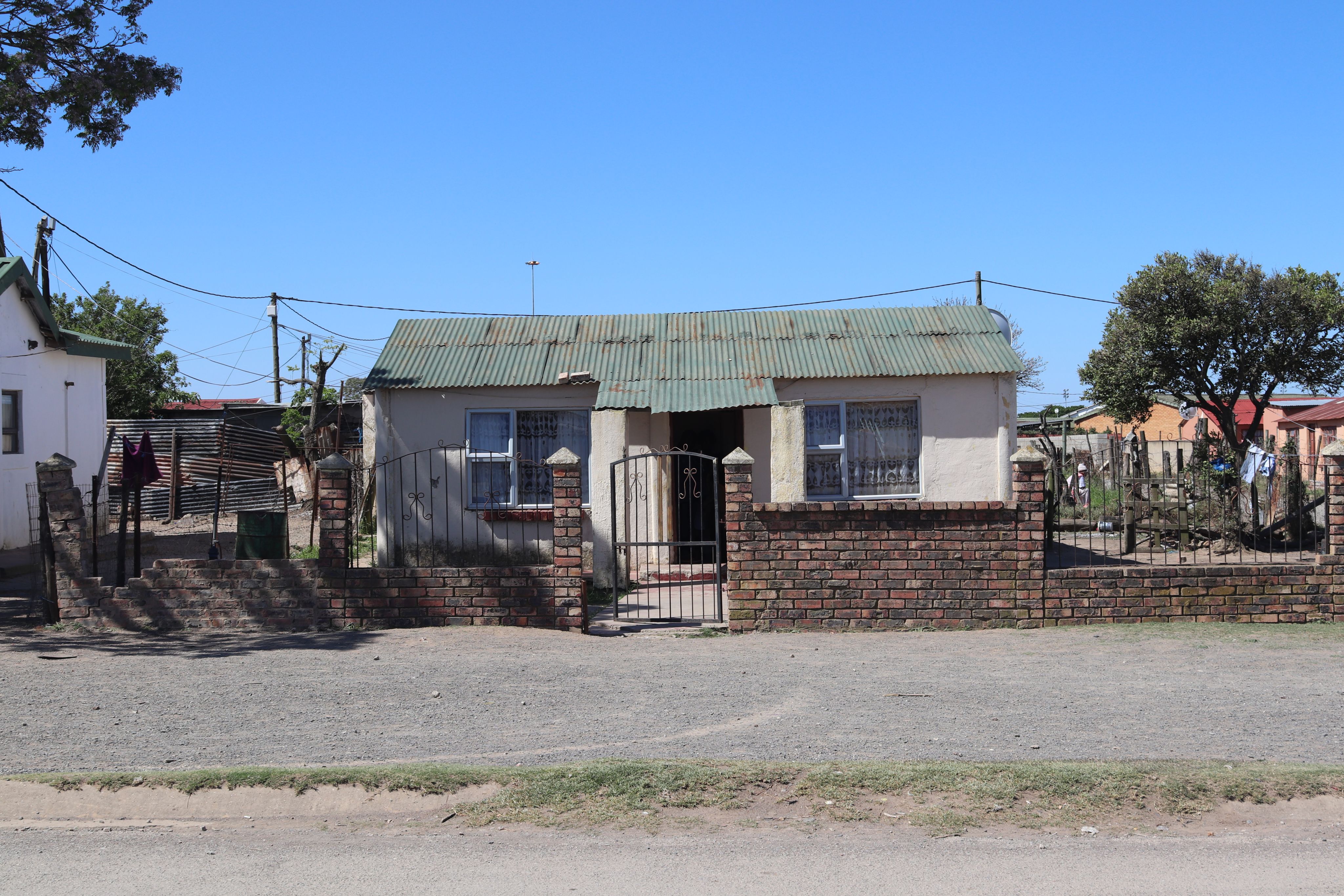
In the dusty and gravelled roads of Joza, a township in Makhanda lies a peach home. This is the home of the Mhazi family. Their mother was born and raised in this home by her parents. Now she is old and lives with her children, who are raising their children in this home. These are the children who will tell the tales of this beautiful 2 bedroom 45 m squared box that they call home.
The reality of many people living in the Eastern Cape is they are subjected to live under a government that is mismanaged and overwhelmed. South Africa is one of the unequal countries globally, and those realities are seen clearly in a town such as Makhanda.
On one side lies Rhodes University, which schools students from all over the world, and on the other side lies a township that can go weeks with no running water in its taps.
I am reminded in the Mhize family that the realities of the place they live is not all there is to this township and this home. There is a story that goes beyond that.
Her house feels of home, and that is as plainly as I can put it. But in essence, it's the bread that she is baking in her oven and the homemade polish that she uses on her floors and the sewing machine that's constantly spinning. It's the sight of the wool on top of it, the children, a new one every time I come to visit. The neighbours walk in without knocking, coming to share a story and a laugh. It's the door that is left open at all times and the sound of taxies and music from the nearest shabeen.
The people in this place have shared more than just sugar on bad days. They have shared their lives, they have watched each other grow, and now they watch each other's children.
Black neighbourhoods have this shared similarity all over the world.
Yet, it is important to note that the realities of what is happening in these neighbourhoods and the neglect they experience cannot be glamorised, no matter how well the people living in them have adapted.
When I ask mama Mhazi what she likes most about this town, she doesn't have much to give. She talks about her dissatisfaction with this town. The parents fear for the safety of their children, the roads have not been fixed for as long as some of these grandchildren were born, and there were no jobs and no water.
"If I could take the people and put them in a better environment, I would," she says in her husky voice like my grandmother's, and when she speaks, she is slow and calm and particular. She takes the time to explain everything to me, even the most simple of them.
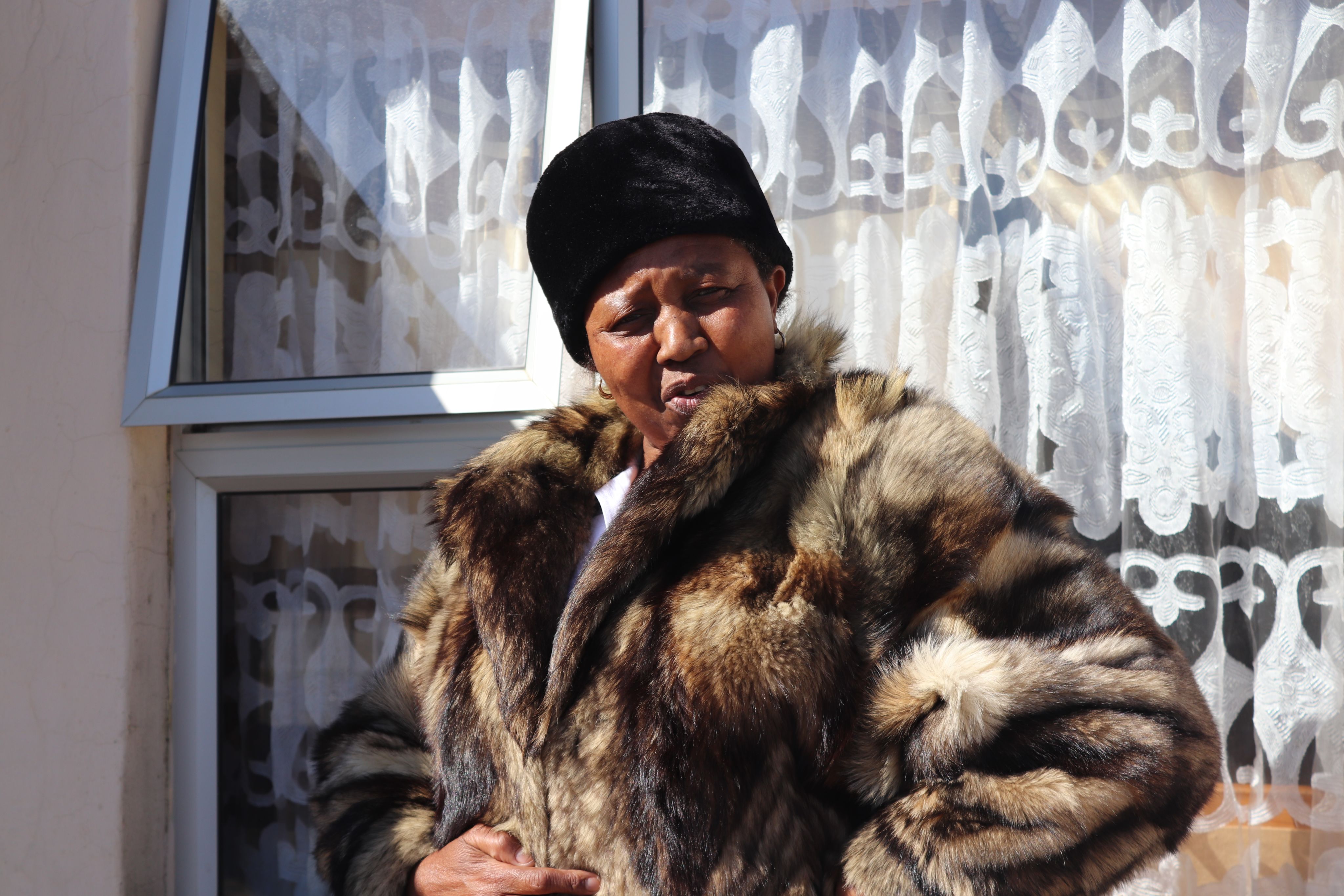
Miss Mhazi when to put on her favourite hat and coat for this
Miss Mhazi when to put on her favourite hat and coat for this
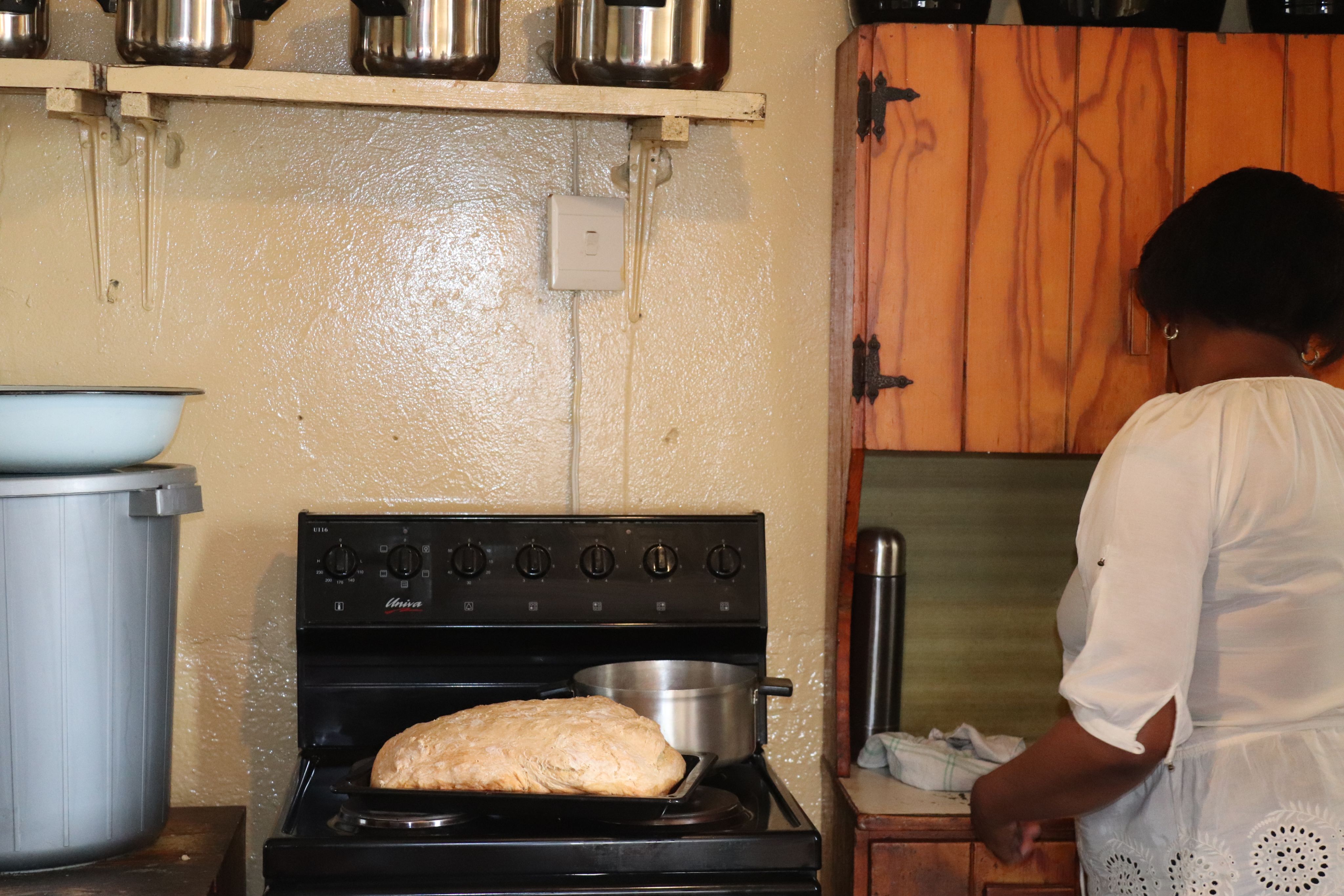
Miss Mhazi in her kitchen making bread
Miss Mhazi in her kitchen making bread
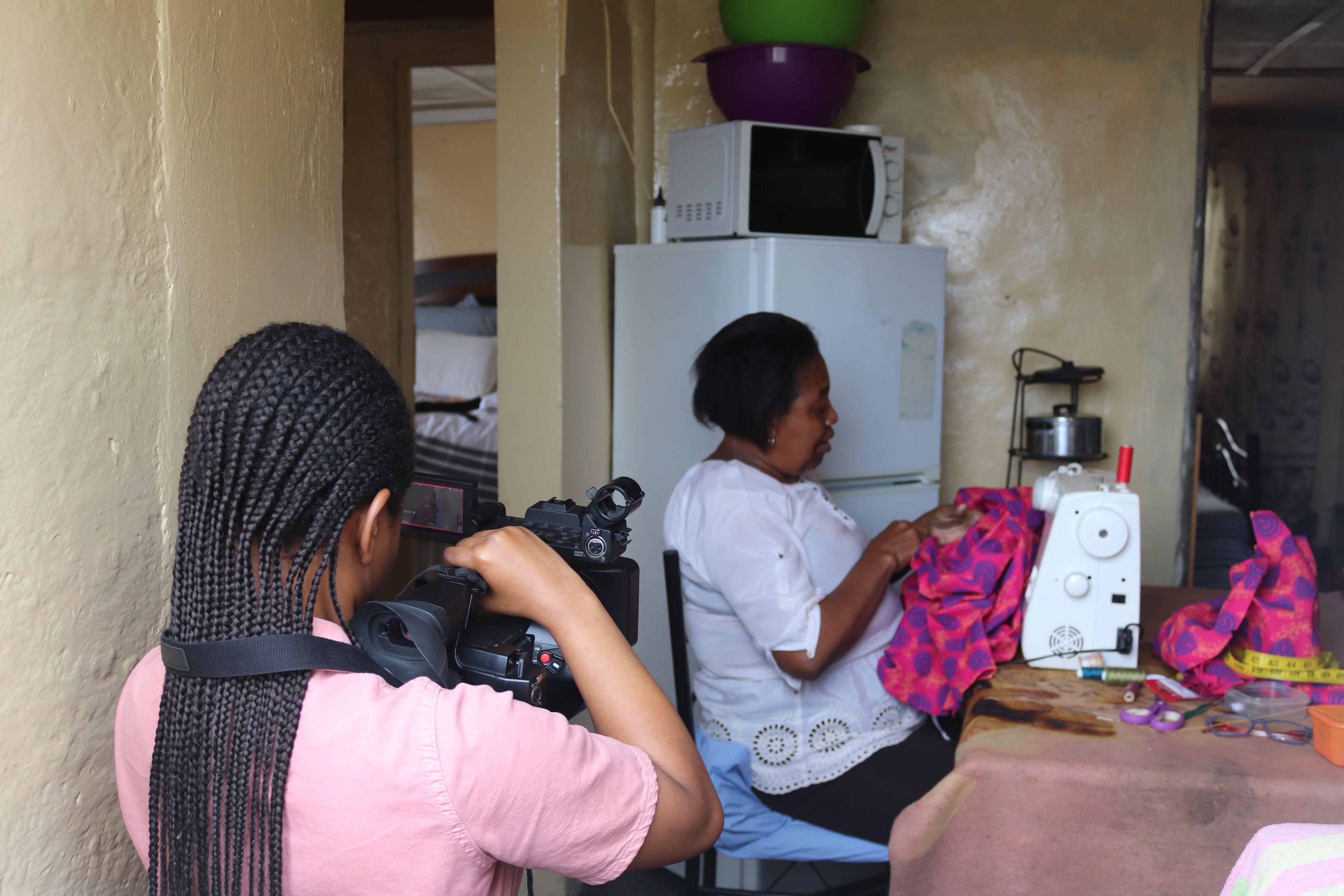
Miss Mhazi with her sewing machine comfortable with the cameras
Miss Mhazi with her sewing machine comfortable with the cameras
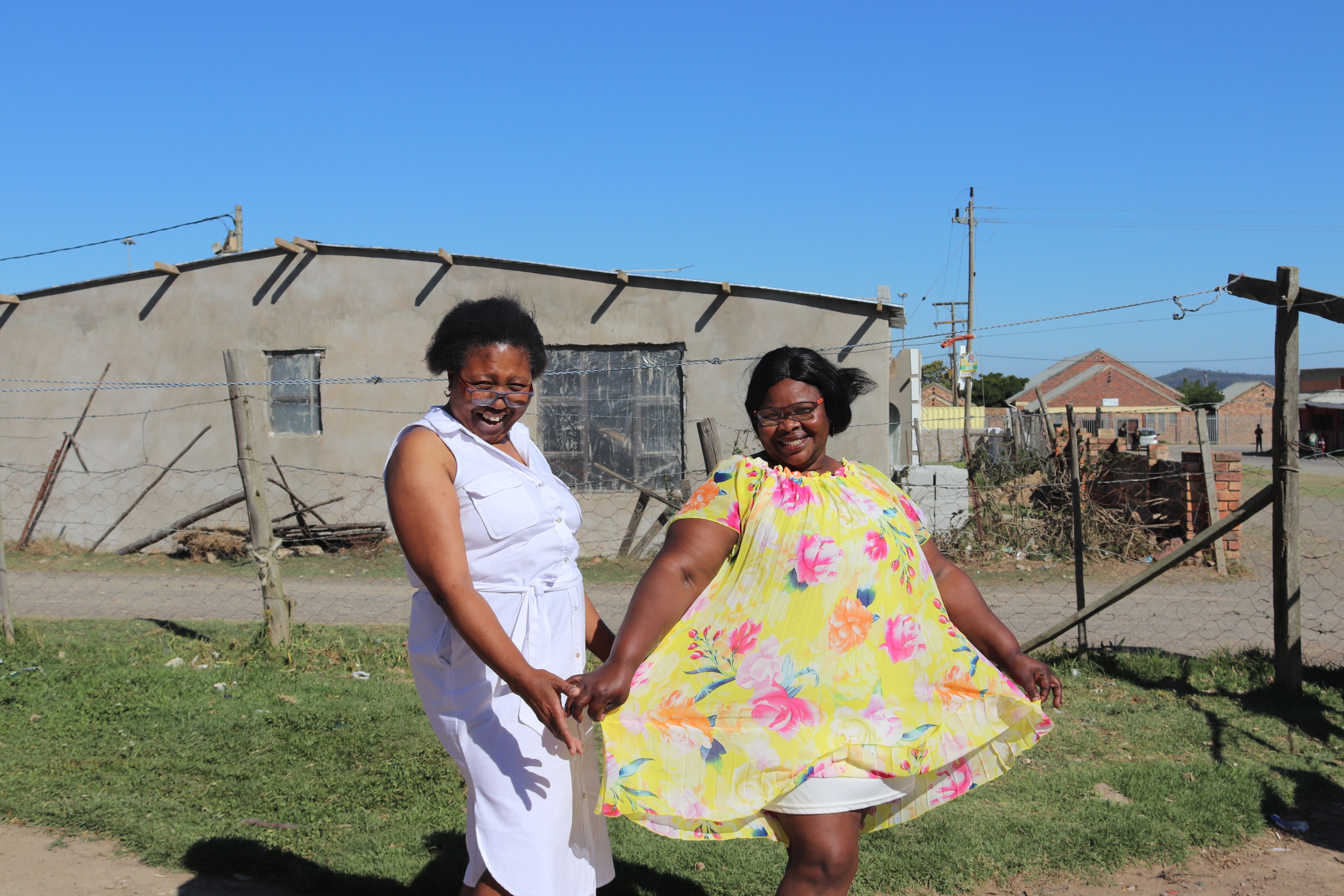
Miss Mhazi with one of her childhood friends, for a photoshoot
Miss Mhazi with one of her childhood friends, for a photoshoot
Makhanda
Committees Drift
Committees Drift was a military outpost established by the British during the frontier war of 1819. This is where the Tsana Family reside
Geolocation
26° 49' 58.8", -33° 8' 60"
Committees Drift
The Tsana Family Home
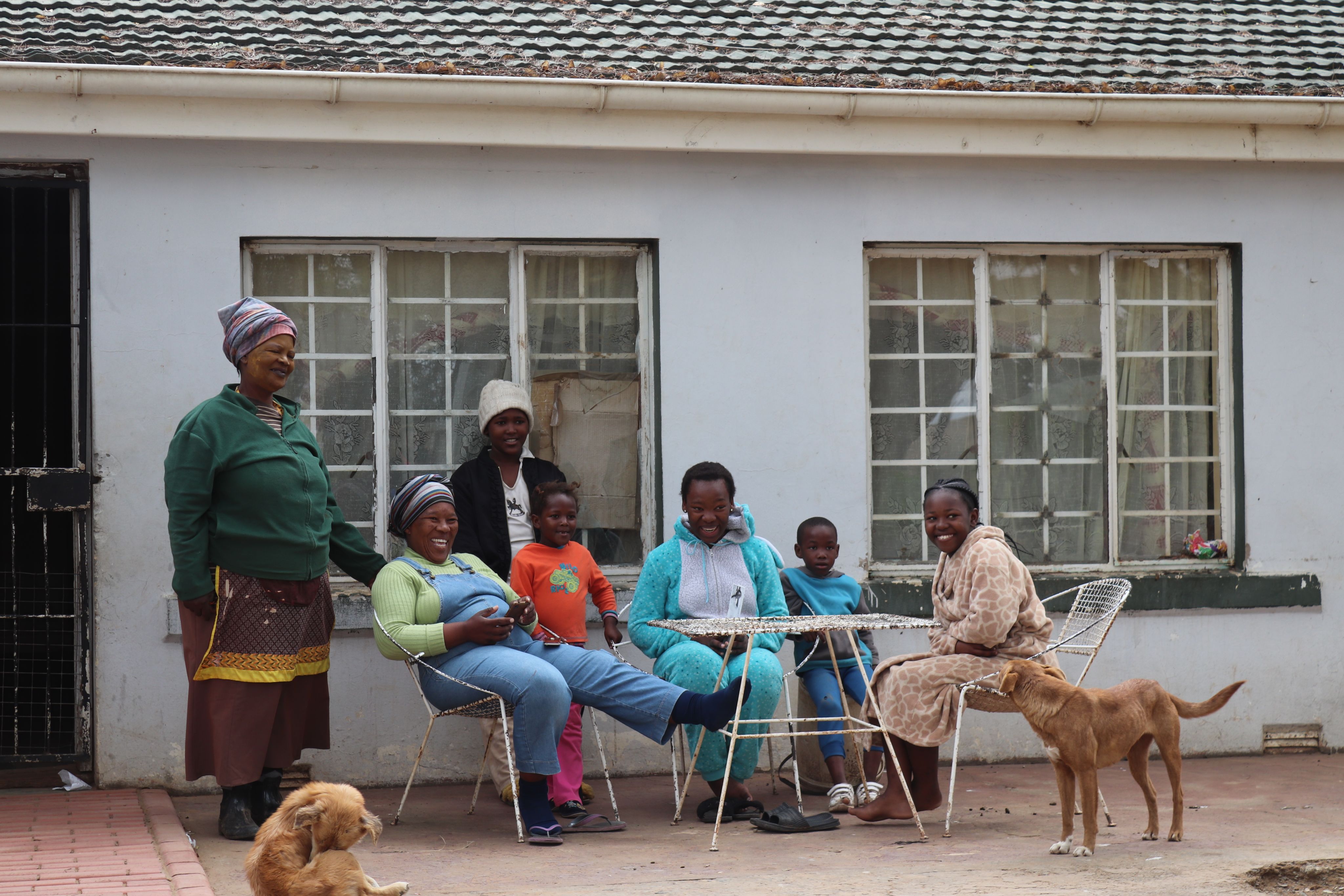
There is a certain level of consuming power that lies within nature. The road to Committees Drift is made with mountains that seem to take you into a different fortress.
Beyond the town of Makhana, as we know, it lies Outspan Farm that the Tsana family reside in Committees Drift.
After searching for a black-owned farm for months, I had finally found one 44 km away, and it was headed by a black woman, miss Fezile Tsana.
The smell of fresh air that was bouncing off the high mountain rocks, the wet loam soil on the ground that was now dry on her face, and the vegetables that would feed her family and the community of Makhanda overwhelmed the whole experience. It felt like breathing for the first time.
She spoke as though she had known me for my whole life, and I spoke to her as though a mother and a friend. She spoke to me of her desire for ownership and the dreams and goals for her children and grandchildren with no fear.
This woman that I had never met I was now experiencing an intimate connection with. It was not just about how we spoke or the cup of tea we shared with her fine china. Seeing a black woman from a different world have the same dreams and fears as I felt intense.
Even as she was was in this empowering position, she spoke to me of how she wished that one day the government would give her ownership of the land she had been naturing for much of her adult life.
Her mother had done the same thing, tending to a white man's land. Her mother had wished the same thing for herself and her when she was younger. She was older, and she had been carrying not only her dreams but the dreams of her mother.
When I first started with this documentary, I thought I was doing something far from my identity. At some moments, I was confused about how I would ever bring it to completion. I was trying to tell a story about black people who were not focused on our trauma, poverty, and pain. These are all the narratives we have seen in the media. This is all black representation got.
As a young girl who was raised on cosmopolitan and watched Keeping up with the Kardashians. The lack of representation in media is something I was always seeing. In all the media I was consuming, there was never someone like my friends that I could look up to or me.
I thought my project represented black people in these spaces that I don't always see them. Through this journey, I realized there was a lot that could be glamourized within the African culture. I realized I was trying to make black people fit into these spaces rather than show them in their own spaces.
Yes, black history is wrapped in struggle and wars and pain, which I had to come to terms with. But in between all this, there was a bigger and more beautiful story to tell, which I focused on.
Norkie
Norkie
Hope Praise
Hope Praise
Rhodes University Student
Rhodes University Student
I struggled to bring this story to a conclusion. I felt there was so much more to be said and shared by the people in Makhanda. I felt there was a lot still to be said about black communities. Only through time will we be able to bring justice to these communities and the people who live in them. Through time, we will master how to represent people of colour in media in the best way possible.
